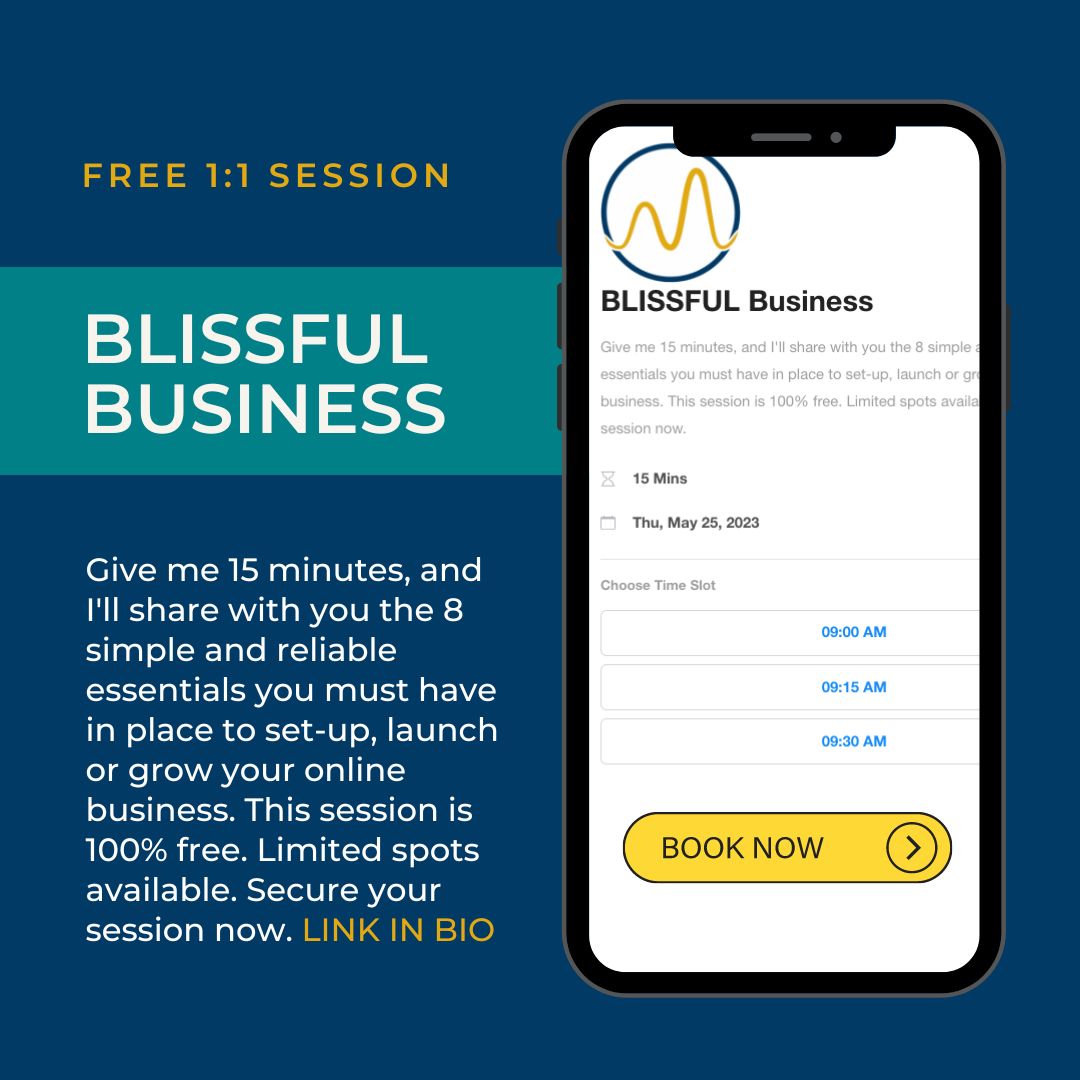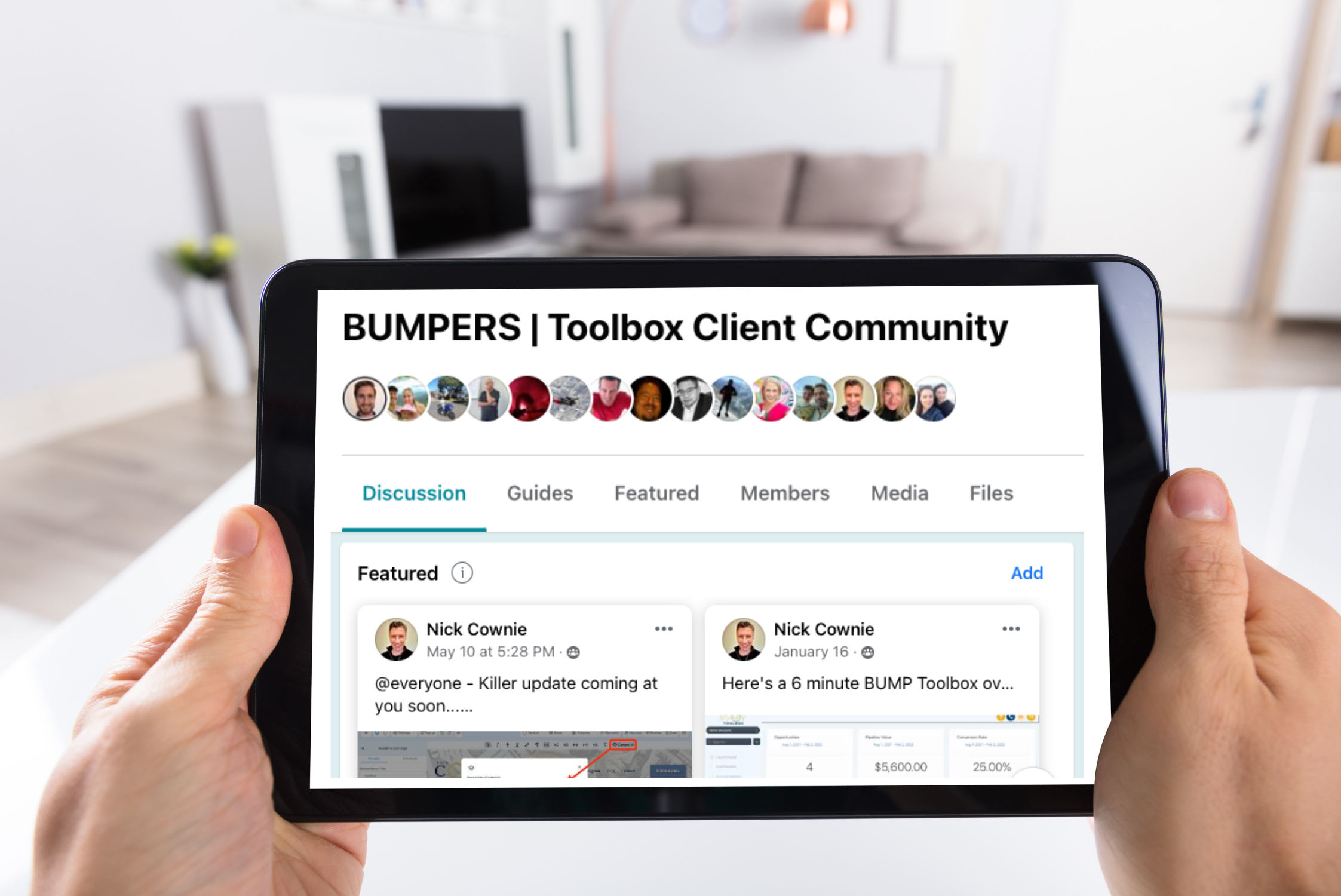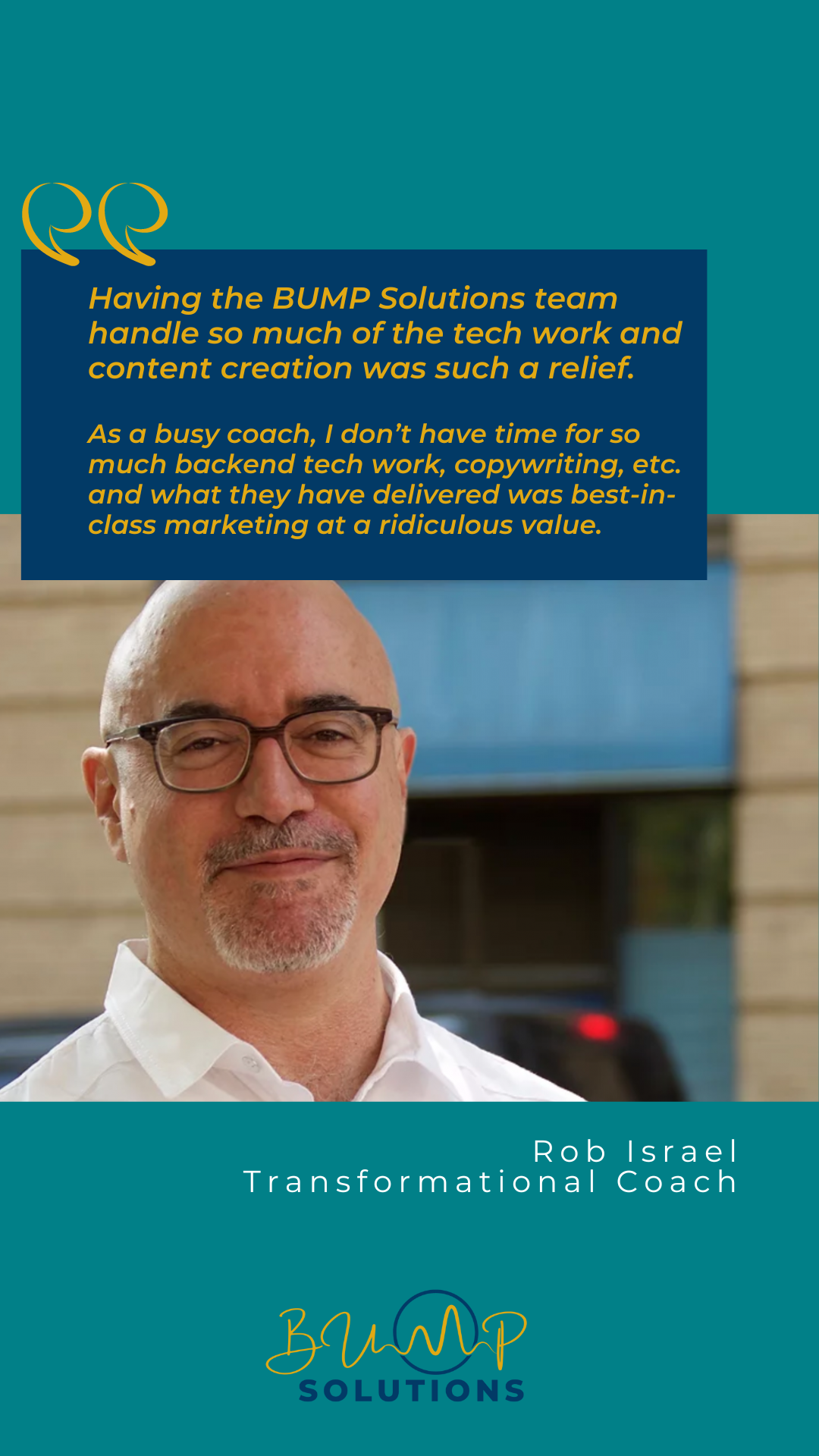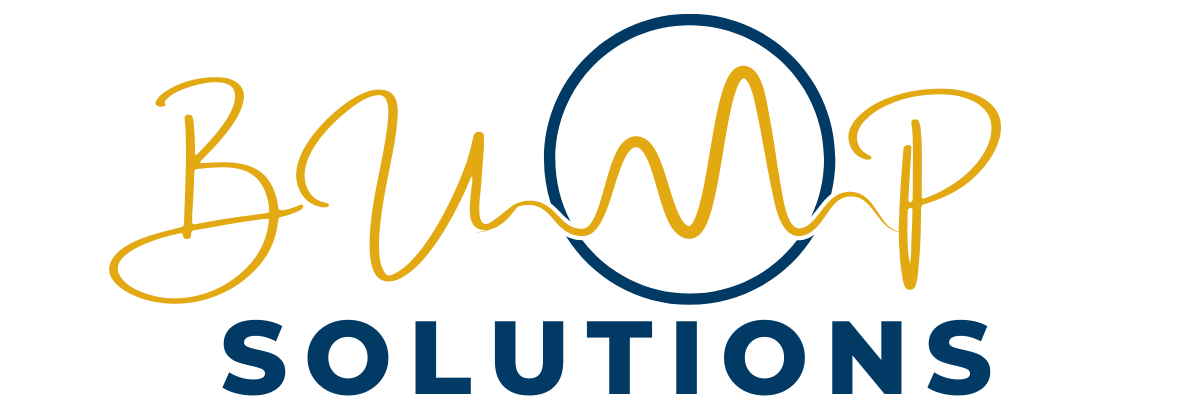Read The Latest posts...
For authors, coaches, and course creators setting-up, launching, and growing their online business.

Create Your Coaching Business Model In 3 Easy Steps
Once you’re trained as a professional coach it is easy to be drawn to one-on-one sessions with clients and believe that you would be quite happy doing that forever.
And although there is nothing wrong with private client sessions, your growth as a business owner will be limited as soon as you run out of time for your sessions.
From our experience, rare is the coach that can run more than twenty sessions a week both logistically (because your business will also need time for tasks like admin, marketing, sales, planning, finances, and more) and mentally (to serve clients properly and sustain your energy on the long-run, a limit to the daily number of client sessions is essential - as you know, some clients can be really draining).
Assuming that you’re working at capacity and fill up twenty client sessions each week, your coaching business income will plateau at:
Hourly Sessions Available Each Week x Your Hourly Fee
For example 20 sessions per workweek (4h per day) x $100 = $2,000 per week* (before tax and expenses).
If the number you see when running this formula isn’t quite what you expected from full-time work as a coach, please read on.
*Important Notes:
The fees a coach charges varies greatly depending on clientele, experience, and the type of outcome achieved for the client. New coaches charge anywhere from $30 to $100 per hour, whereas established coaches can charge up to $250 per hour.
Business coaches tend to charge more, but this isn’t a reason to not dare start a life coaching business. You simply need to make sure you plan a business model that is leverage-able as shown in this article.
The only sustainable model we’ve witnessed is the one where coaches charge five to six-figure hourly rates to a wealthy or corporate clientele interested in very specific results - often business-related. These can be very interesting to run but are not the type of business models we are referring to in this post as the approach is completely different from the outset.
We recommend new coaches (or existing coaches keen to revisit their coaching business model) to think of your business model as a journey through the wilderness (think anything from urban jungle to a trek to the base camp of Mount Everest). A unique and carefully crafted journey that you take your clients on.
And on this journey, your clients will need some essentials:
1. A map, to know where they’re traveling to and know which turns to make,
2. Your guidance, to make sure they don’t get lost on the way when the landscape gets tricky,
3. Peer support, to be able to ask for help from people who understand what it takes to be on this journey,
4. [BONUS] And ideally, a pocket guidebook they can refer to anytime, showing them everything they need to know about the “area explored” (aka the specific problems/struggles they work on while on their journey with you). This is, of course, your online program. They are not always essential. Done well, they will leave your client feeling like they got so much more value out of the experience and will have something to refer back to anytime they need a refresher course on specific issues. More on this in just a moment.
1. CREATING YOUR COACHING BUSINESS MAP: YOUR COACHING MODEL
Have you ever been in a new city on foot and without a map, while trying to get to a specific destination?
It can be insanely frustrating indeed. You need to ask complete strangers where to go and trust them blindly with their (often twisted) directions and knowledge of the city. You will take unnecessary detours that bring you to dangerous areas or situations you didn’t expect, nor wish to face.
But with a map, you can choose to take the most direct path that keeps you safe and save you time as you travel to your destination.
That’s what a coaching model offers to your clients.: Direct access to their desired outcome.
Since you are marketing to the same type of person, facing a common #1 problem you help them solve with your unique approach and skills, you will be able to develop a common trajectory for them. A tested and proven step-by-step path with stops on the way that helps them learn, overcome, and grow with you as their guide.
For most coaches, a three-step path is often enough as it can be spread evenly over 12 weeks to 12 months. At BUMP, we add the details of what happens at each stop in the form of a three circles model. As an example, see the one we use for Coaching BUMP:
Ultimate Foundations, Marketing Funnel, and Platform Freedom are the three pillars of our process, meaning that although this is not a coaching program, our clients still lean on them to understand the logical order in which things need to happen to set up a complete coach marketing platform.
The additional words in the yellow section on the outer layer of the figure reflect the specific items that need completing within each of the three pillars.
Each of our clients travels from Ultimate Foundations - Market to Platform Freedom - Sales within a three months timeframe maximum. The ability to be so clear about our service and outcomes is one of the key attributes of having a solid model in place to support your work.
2. WITH YOU AS THEIR GUIDE, YOUR CLIENTS WILL MEET ON A REGULAR SCHEDULE AS A GROUP.
Think of group coaching as a campfire experience - a pause on the group’s journey - where everyone shares their experience while supporting and caring for each other.
You will use your skills and knowledge to bring solutions to the challenges, obstacles, and setbacks the travelers bring forth.
You will also be able to prepare the group for what is to come next because you have been on this journey often enough to anticipate their needs and wants.
In my opinion, group coaching is by far the most underused tool for coaches. It often gets a bad name because it scares both coaches and clients.
Coaches fear that it will be hard to sell group coaching to a client, while also feeling unsure of their ability to actually help everyone on the call. (solution: work on your sales process to demonstrate the value of your group coaching sessions while practicing running group sessions with clear intentions - see more on that below)
Clients fear that they will lack privacy and personalized advice by signing up for a coaching program that includes group sessions. (solution: explain/educate your client on the value of group coaching and let them experience the beauty of it for themselves)
Both sets of fear and understandable, yet not practically true.
With over 15 years of experience as mindset and business coaches, we found that clients thrive in group coaching, yet progress slower in face-to-face settings - no matter how much the clients say they prefer working face-to-face. We’ve only been proven wrong a handful of times over thousands of coaching clients.
When face-to-face, a client will ask specific questions that get specific answers, while in a group setting, that same client will also gain deep insights on the issues experienced by other group members and get the answers to those too - without even having to ask them.
What is interesting here is that often, these additional learnings come from the fact that clients aren’t always aware of all of the issues they are facing. Hearing others voice them really helps bring those issues to the forefront of their mind. We also found that some clients will feel more comfortable talking about a topic that others never dare to bring up - no matter how much they need insights and guidance with it. (these problems are often linked to heavily charged emotions and feelings like shame, fear of failure or judgment, anger, frustration, lack of self-worth, and lack of confidence. etc.)
3. ON THEIR JOURNEY, YOUR CLIENTS WILL LEAN ON EACH OTHER, BUILD A COMMUNITY, AND GET THE BENEFITS OF PEER SUPPORT.
The definition of a peer is someone who is of equal standing with another. (Merriam Webster’s Collegiate Dictionary, 11th edition)
Equality is the key interest for us here. Because as equals on a journey, judgment gets discarded. And that is your most powerful selling point when it comes to adding group coaching to your offer.
As a group traveling on the same journey and aiming to achieve similar outcomes, you will observe how much people lean on each other. This peer support will help your clients feel accepted, connected, and understood.
Lack of any of these is very common issues when working through difficulties no matter the context: business, personal, health, emotional, or else.
4. AND FINALLY, YOUR CLIENTS WILL NEED A POCKET GUIDEBOOK : AN ONLINE COURSE OR PROGRAM.
An online course is a wonderful tool to accompany your client on their coaching journey. It is easy to craft if you have a solid model with pillars and sub-topics to support it.
You can use it as a stand-alone program that you sell on its own as an introduction to your work, or as an additional benefit, your clients get access to as part of your main coaching program.
The world has moved its education online and it is no longer strange for people to sign-up for online courses. The platforms that support online courses are better than ever. The one we carefully selected and set up for all of our Coaching BUMP clients allows even the least tech-savvy clients to access and benefit from your course(s).
With the support and tools outlined, your clients will love their coaching journey with you. They will feel the solidity of your expert guidance, the love of their peers, and the reassurance that comes with a good quality map and guidebook.






